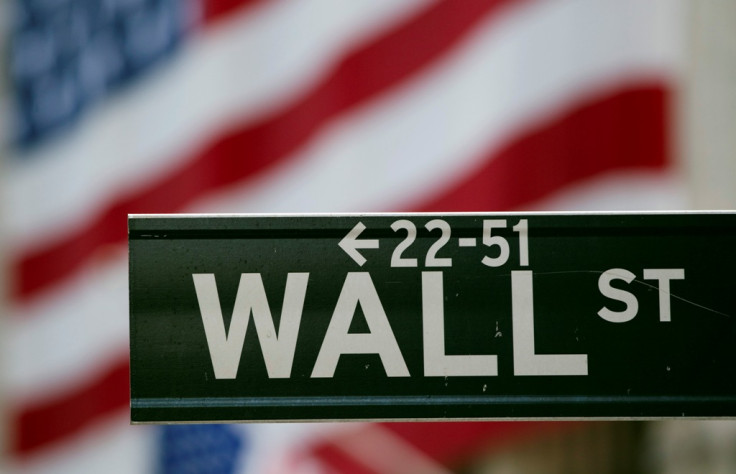How will blockchains cross the clearing and settlement chasm?

Capital markets expert Larry Tabb has issued a report "Blockchain Clearing and Settlement: Crossing the Chasm", which takes a realistic — some might say pessimistic – view of hurdles in the way of blockchain-enabled real time clearing and settlement.
Tabb highlights what he sees as insurmountable problems relating to identity and transparency, and explores these in some depth from both a buy-side and sell-side perspective. One of the key issues raised in Tabb's report isinformation leakage. This inevitably follows if registration changes from generic "street name", where brokers and custodians know which securities are held by clients, to an exacting shared ledger, whereby the client name should be on the transaction record prior to entering the trade.
Large investors, hedge funds, activist investors, and especially takeover firms, do not want to let others know that they are accumulating positions, notes Tabb. Information leakage will also happen when securities are lent out by investors to cover short positions because moving to real-time clearing would require securities to be on hand before they were sold (because they would clear virtually immediately).

Tabb agrees blockchains could deliver efficiency in areas like reconciliation or perhaps OTC markets, but in terms of the clearing and settlement process he says, "I just still don't understand how it's going to work," adding "the level of transparency has a very significant impact on whether people will use it or not."
Short selling
It would be possible to obscure who is actually accumulating a position by using some sort of token or even have a random number that is the client, said Tabb. But the information leakage problem becomes more critical when it ties in with the securities lending process. Real time repatriation of securities used in short selling discloses your trading strategy to the sophisticated investors that borrowed them.
Tabb said: "Anybody who is shorting is a sophisticated investor, so what you would have to do is tell one of those more sophisticated investors, 'hey I need those securities back 'cause basically I'm going to sell them'.
"Now they might not know it's you — it will probably go through a custodian or something — but they know that somebody is about ready to sell a million shares of Vodafone or whatever. So either you have to borrow them; you have to pay money to borrow them from a broker, or you basically can't sell or you'll fail on the delivery because you won't actually have the securities on hand to make that delivery."
Asked if blockchain-enabled real time settlement could potentially retard short selling activities, Tabb said someone would have to figure out how fix this in advance. "I doubt that it would ever be implemented if it impacts short selling because that's a very significant business. The investors, the brokers, the asset holders, virtually all the major players would be against that; it impacts their investment strategy, it impacts the efficiency of the marketplace, it impacts custodian revenue opportunities."
Optimised settlement speed
Referring to a deal to provide a blockchain real time clearing option to the main Australian stock exchange ASX, Blythe Masters of Digital Asset Holdings pointed out that the technology could ascertain which trades don't need to be settled instantaneously and apply what she called "optimised settlement speed". The blockchain can allow a delay in some trades so these can be netted, reducing risk and liquidity requirements, she said.
Tabb agreed some sort of sliding scale would need to be put in place to facilitate the process. "It may be a day, it maybe two days, it may even be end of day on trade day. But the issues around information leakage and the issues around netting are really very critical."
Netting
Whether blockchains will settle trades on a gross or a net basis is a vexing question. Some advocates of blockchain technology believe netting will be integrated into the ledger, although they concede this will not be straightforward, others say everything will be done on a gross basis. Tabb believes a blockchain model would necessarily entail gross settlement and that this would be hugely inefficient to the way markets function.
"If a blockchain is an irrevocable record then the question becomes is — how do you actually net it? It needs to be a lot more complicated than a simple ledger of who bought what, when, and a chronological list of all the transactions. You have netting transactions, so how do I figure out exactly which securities I own?
"Even if you net it – what does that look like on the blockchain? I think about a ledger of all the transactions, now if you net all those transactions out, all of those things would be compressed. Would you have a separate netting transaction? You would never have actually received a payment for that."
Where Tabb sees some opportunity for blockchain is reconciliation. Trade reconciliation takes place between the books of brokers, custodian banks and customers.
"Just eliminating the reconciliation process would mean getting rid of some software and bunch of clerks who after the fact try to make sure that what you and I traded are the same thing. That would solve tremendous problems. And it would have nothing to do with settlement or clearing, but would easily be saving billions across the industry."
© Copyright IBTimes 2025. All rights reserved.






















